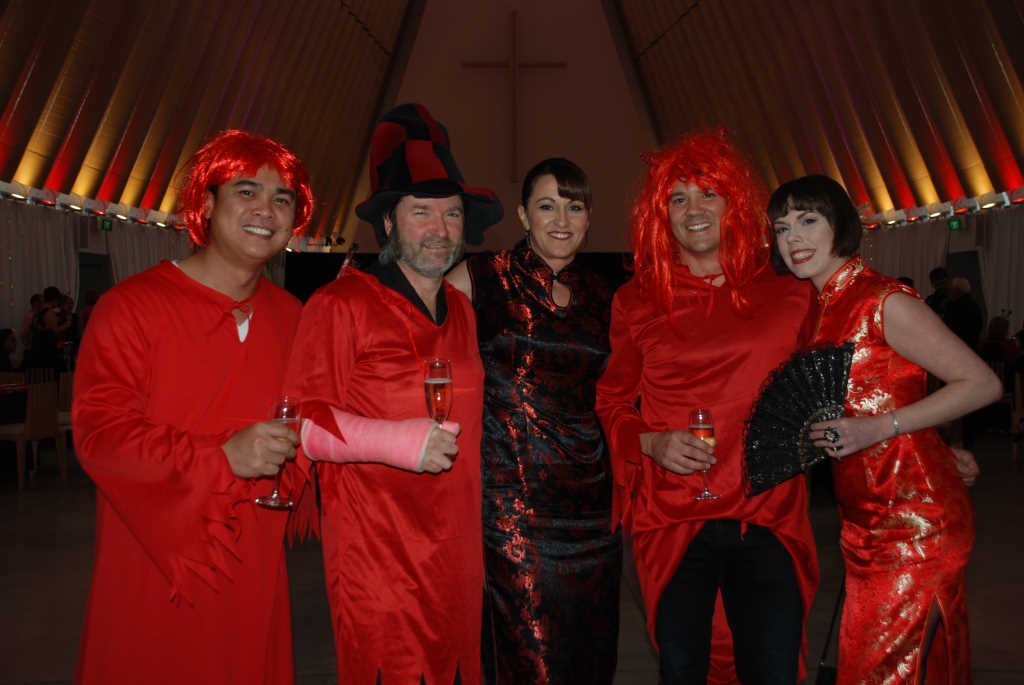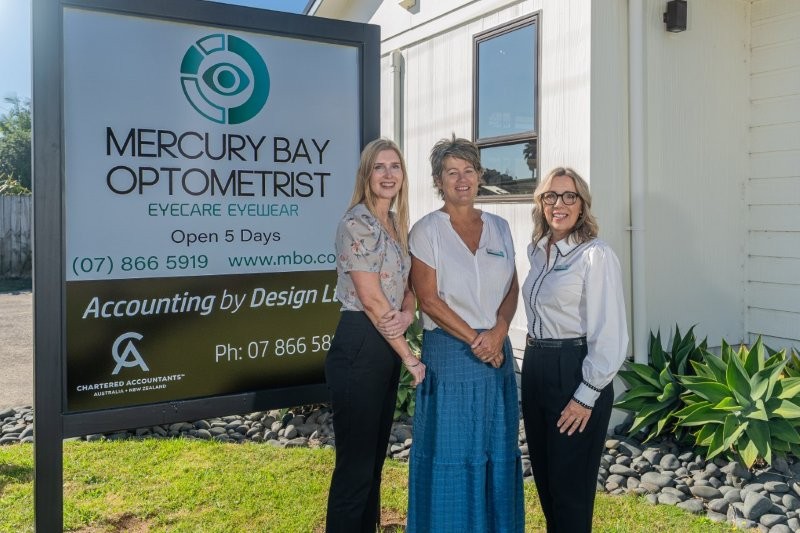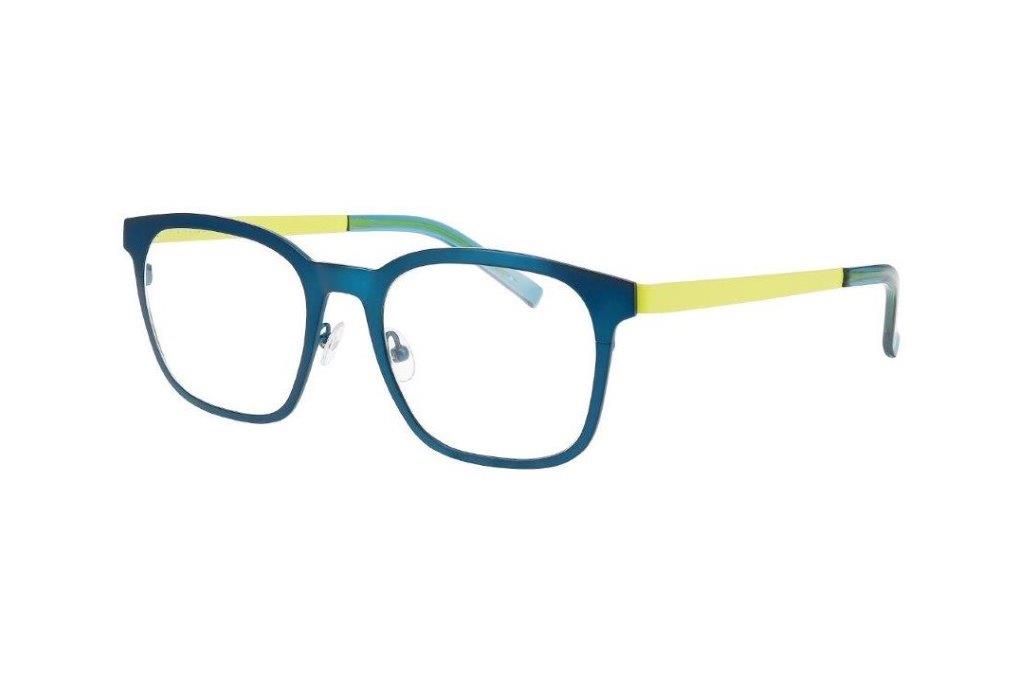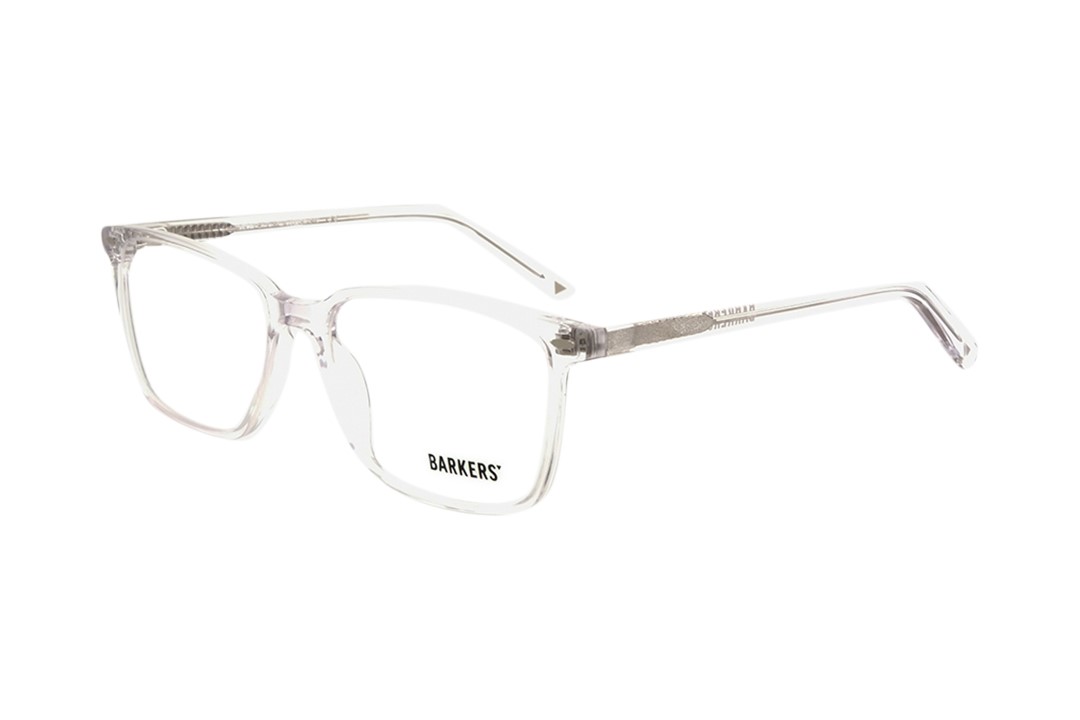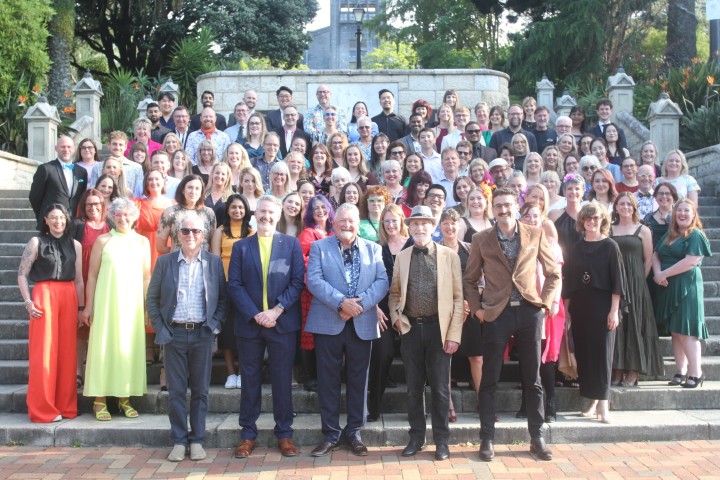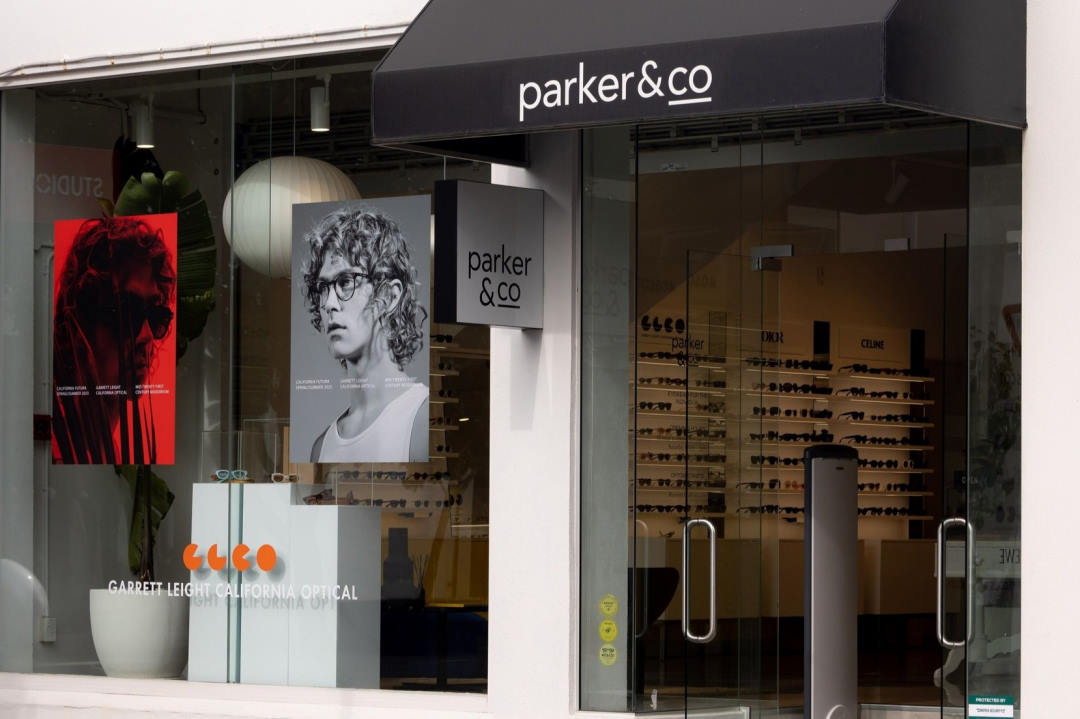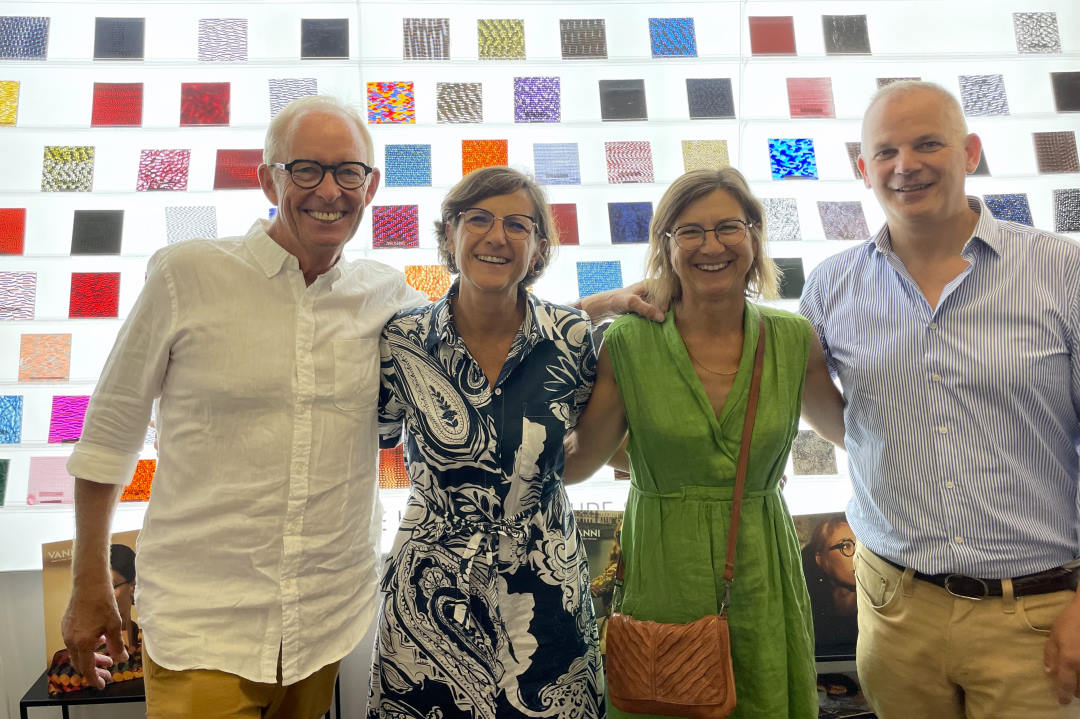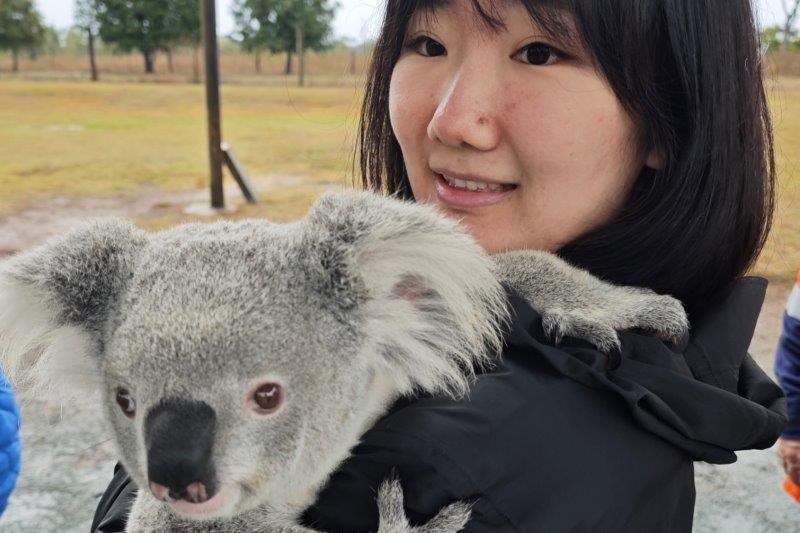ADONZ: an educational, friendly affair
A regenerating Christchurch, full of optimism for the possibilities that lie ahead was a suitable setting for this year’s Association of Dispensing Opticians of New Zealand (ADONZ) annual conference.
Nearly 100 delegates, sporting a colourful array of eyewear, plus a handful of selected exhibitors, congregated at the Rydges Latimer, for a little over two days of education, networking and fun.
President Peggy Savage kicked off proceedings with a bit of housekeeping, before warmly welcoming the audience to Christchurch and celebrating the growing number of trained and registered dispensing opticians in New Zealand. This led nicely into an introduction to James Gibbins who, together with his business partner Chedy Kalach, run the Australasian College of Optical Dispensing (ACOD), the new provider of DO education in New Zealand (see NZ Optics’ July 2017 issue).
Why trained DOs matter
Gibbins opened by providing an amusing but thoughtful take on why optometrists and practices need a trained DO, pulling analogies from the popular Dreamworks’ movie ‘How to train your dragon’, stressing how working together well, can create a powerful business force. “It’s a critical role that needs to be handled well.”
Finding this business soul mate starts from knowing where and how to recruit the right person, he said, ensuring they are introduced correctly into the practice and given the skills, training and support they need to become a valuable member of the team. “Experience can be given, can be trained, but a good personality can’t,” he summarised.
Once a practice has found and employed the right potential DO don’t, however, shove them straight out the door on to ACOD’s course, said Gibbins. “The learning curve at the workplace is already very steep. Let them settle in a little bit first before pushing them into another steep learning curve.”
He also stressed how a practice owner’s support is vital to the success of a training DO, both from a time management and emotional perspective. Consider a course completion celebration and perhaps even a financial incentive to keep them going, he said, as it’s not easy to become a trained DO in New Zealand, which is what makes them so valuable.
In his second talk, Gibbins tackled the tricky subject of conflict resolution. As an unhappy customer shares their experience with others nine to 15 times, compared with a happy customer’s four to six times, there’s no excuse not to listen and express empathy. Just “zip it,” said Gibbins, and let the customer unload!
Getting down to business
Following ADONZ’s AGM, ACOD’s Chedy Kalach and fellow optics educator Steve Daras tackled some serious maths with prisms and the difference between occupational and progressive lenses.
“Any lens that helps a person do a job is an occupational lens. But not everyone works in an office or indoors,” said Daras. Dispensing and recommending occupational lenses adds value to both your patient and your practice, “but it’s knowledge that creates these sales,” he said.
Later in the conference, Daras also gave a quick quiz about why standard alignment is so important. The final frame fitting is crucial and a good DO should know how to do this well, he said. “Going the extra mile [when fitting] will give your practice a competitive edge.”
Elaine Grisdale, the Association of British Dispensing Opticians (ABDO) head of professional services and international development, was a welcome return speaker to the ADONZ conference. This year her talk focused on our rapidly changing world. Although tools are only as good as the person using them, she said, embracing technology is essential to build trust in modern day society as well as to stay ahead in today’s competitive market.
Rounding off the first day, Fiona Anderson, ABDO president, who had flown in the same day as her talk, had the whole audience laughing with some highly entertaining Scottish references to the impact of culture on your practice. It really is not about what you say, but how you say it, she stressed, adding it may sound simple but it’s a lot easier said than done. Anderson highlighted the importance of using inclusive and non-judgemental communication at the workplace, about considering your whole demeanour, respecting personal space, your appearance, understanding local ways and cross-cultural communication strategies.
In a later talk, she tackled occupational dispensing and how important it was to ask the right questions to really understand a customer’s needs and so avoid trouble later. She highlighted ‘drivers’ as an example. They essentially do the same job, but have very different needs depending on what they drive, how they sit and when the work, she said.
Tackling more specific problems
Optometrist Iris Xu tackled the somewhat controversial topic of Irlen syndrome*, sparking lots of questions. Irlen often presents as pattern glare symptoms and this inefficient optical processing problem can cause quite severe reading difficulties and discomfort for patients, she said. Tinted Irlen lenses suppress the hyper-excitation of the cortex causing the overloading of the visual system and can, in Xu’s and other members of the audience’s experience, help enormously to reduce symptoms.
Sometimes Irlen syndrome is mistaken for dyslexia, said Xu, but coloured lenses can still be of benefit to these patients if the child has visual dyslexia. In cases when a child presents with both visual and language-based dyslexia, the Irlen method allows the child to focus longer and with greater comfort, she said, before walking the audience through an Irlen diagnosis.
A member of the Black optometry and dispensing optician dynasty, Nick Black a DO-practice owner, now based in the UK, discussed fitting children with contact lenses and the myopia epidemic. It’s important to fit contact lenses early, when a child is still growing both for better myopia control and to ensure that good CL care becomes second nature to this new generation of visually-challenged beings, he said. Black has fitted children as young as six with lenses and said some quickly become adept at putting them in and taking them out themselves.
Black also tackled a personal passion of his, low vision, and how DOs can make a big impact as a relationship builder with low vision patients. There’s a wealth of low vision tools out there today, but you need to ask simple questions to fully capture and really understand your patient’s daily needs, he said.
Local ophthalmologist Dr David Kent from Fendalton Eye Clinic then walked the audience through some of the most common eye surgical procedures, such as cataract surgery, for which he explained the difference intraocular (IOL) lenses on the market, and patient care once they’ve had surgery.
ANZ’s Stephen Caunter, a popular and regular ADONZ speaker, made sure everyone stayed awake with his highly entertaining talk ‘Scams, frauds, online love and the many other ways to lose money and feel dumb about it later’. His take home message: “if it seems too good to be true, it always is.”
And last but not least, Independent Lens Specialists’ (ILS’) Glenn Bolton closed the conference with a talk on Rx sunglasses and specialised lenses and how it’s possible with today’s technologies to save someone from early retirement with occupational, specialised lenses.
On the lighter side
No ADONZ conference is complete without a fabulous fancy dress Saturday night event, and this conference was no exception. The much-anticipated, secret-venue gala dinner, themed in Canterbury’s red and black, was at the transitional Christchurch Cathedral. A spectacular venue! Pre-dinner drinks, generously sponsored by ILS, were followed by dinner, the awards ceremony (see box story) and a heartfelt official handover of the presidency from Peggy Savage to Donald Crichton.
Crichton, said he would do his very best to honour Savage’s hard work, while thanking her for “putting her heart, body and soul into ADONZ.”
Then, before you knew it, local band Puré was up on stage and there was no doubt the country’s DOs had brought their dancing shoes to Christchurch!
ADONZ 2018 conference will be held in Auckland from 27 to 29 October, 2018. Don’t forget your dancing shoes!
*For more about Irlen syndrome, make sure you read February’s NZ Optics next year.
BOX
PIC – LIFETIME AWARDS 2 – IN ADONZ FOLDER (CAPTIONED)
Awards celebrate new and old
The 2017 ADONZ conference marked a significant milestone in DO’s New Zealand history, with the announcement that future conferences will now host our own graduation ceremony for New Zealand’s home-grown, newly-trained dispensing opticians.
The David Wilson student award
To mark this milestone, outgoing ADONZ President Peggy Savage announced the creation of a new award, the David Wilson Medal. This will be awarded to a new graduate who not only excels at the academic part of the training, but also as a person who has the heart and passion for optics, that David Wilson had, she said. “Previously students have had to travel to Australia for the graduation, but with the course now changing (to ACOD) the Association will now be holding the ceremony.”
The award was named after David Wilson who was, among other things, head teacher of ophthalmic optics at the Open Training and Education Network for more than 20 years, an author of two text books on optical dispensing, an international lecturer, research manager at the Brien Holden Vision Institute and an honorary fellow of ADONZ.
Given the changing nature of DO student training in New Zealand, it seemed fitting to introduce a new award for students and to name it for someone who was so dedicated helping students achieve their goals, said Savage. “David Wilson was instrumental in teaching all our New Zealand students and literally put thousands of hours into optics and helping us. He gave so much of himself, so when he passed away we wanted to honour his memory and the contribution he made to New Zealand.”
New life member awards
It is a rare occurrence when ADONZ awards a life member award, but this year’s conference marked the occasion for two stalwarts of the industry, Steve Stenersen and Mike Blackman.
A life membership award is awarded to someone who has contributed to the association, often in the education of new dispensing opticians, and has been dedicated to our industry well and truly over the norm, said Savage. “These are people who, as time goes by, you forget how much they’ve actually sown into the Association, so we really wanted to honour them and say, ‘thank you’, to acknowledge their outstanding contribution.”
Practising, Gisborne-based DO, Steve Stenersen was an Optiblocks course tutor, examiner and ADONZ board member for many, many years. He represented ADONZ on the Scopes of Practice Committee ensuring DO’s became a regulated and recognised force in the industry under the Health Practitioners Competence Assurance Act and was subsequently part of ODOB’s CPD accreditation committee. He also co-authored the ‘Practical Optical Workshop’ with David Wilson and has worked closely with ACOD and Optiblocks to continue to ensure high training levels across the industry.
Mike Blackman has also been active in the management of the industry and the development and recognition of the dispensing role both under law and in practice, previously serving as chair of the Scopes of Practice Committee. A member of ADONZ for more than 40 years, he kept people focused on the “relevant issues for ADONZ and optical dispensing in New Zealand” and been a tireless worker for the cause, said Savage. He was one of those responsible for bringing over David Wilson to educate Kiwi DOs and was one of the country’s first training examiners. “He has dedicated his life to making optical dispensing a better profession; he was the ‘quiet achiever’ of dispensing optics in New Zealand and a constant supporter of training young people,” said Savage.
Robert Maher Award – Vanessa Cumming
Savage’s ADONZ presidential predecessor Vanessa Cumming was awarded the 2017 Robert Maher Award for her services to ADONZ and dispensing in New Zealand. Owner and practising DO at Cannon Street Optometrists in Timaru, Cumming was also president of the International Opticians Association from 2014 to 2016. On her company’s website, she says she loves the technology involved with lenses and lens design. “I have always considered myself incredibly blessed to have found a vocation I have continued to love but which constantly changes and challenges me. My love of unique, exquisite frames and finding the right personality to wear them is my favourite part of the day!”
Look out for more news about another exciting DO-focused award and the IOA conference in the UK in April, in NZ Optics' February issue.










